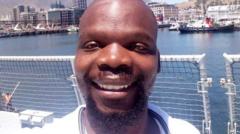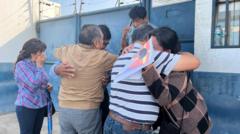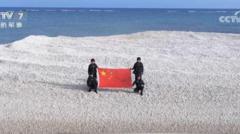Edgar Matobato, a former member of a death squad linked to Rodrigo Duterte, shares his confessions of homicide and reflects on a decade in hiding after exposing the brutal orders from Duterte himself.
A Hitman’s Lament: Edgar Matobato's Revelation of Duterte's Death Squad

A Hitman’s Lament: Edgar Matobato's Revelation of Duterte's Death Squad
Edgar Matobato recounts his experiences as a hitman for former Philippine president Rodrigo Duterte, seeking safety while preparing to testify.
Edgar Matobato, long considered one of the most notorious figures associated with former President Rodrigo Duterte's violent regime, has recently come forward with chilling confessions regarding his time as a hitman. In a rare interview held at a covert location in the Philippines, Matobato reveals the intricacies of his gruesome profession, including the chilling methods employed to carry out his assignments and the weight of the many lives he claims to have taken.
“For almost 24 years, I killed and disposed of many bodies,” he shared, reflecting on his years serving a death squad in Davao City, the southern Philippine city where Duterte first rose to notoriety. Having survived largely out of sight for the past decade since confessing his crimes, Matobato's fears are palpable as he prepares to testify against the regime that protected him in exchange for his silence.
Matobato's chilling accounts range from the use of firearms to more barbaric methods of execution, calling attention to the lawlessness and corruption rampant during Duterte's administration. He even described a ghastly incident where he claims a victim was fed to a crocodile—a stark representation of how dehumanizing this life had become for him.
Currently, Matobato is a man on the run, forced into hiding due to his revelations about Duterte's involvement in ordering assassinations, a claim that has shaken the core of the political landscape in the Philippines. In the wake of calls for accountability, Matobato’s testimony could serve as critical evidence in addressing the deeply rooted human rights violations committed under the Duterte administration.
As he prepares his testimony, Matobato wrestles with both guilt for his past actions and the fear for his future in a country where violence was institutionalized during Duterte's leadership. His story illustrates the complex legacy of the so-called “war on drugs” in the Philippines and raises critical questions about accountability, justice, and the profound impacts of such violent political regimes.



















